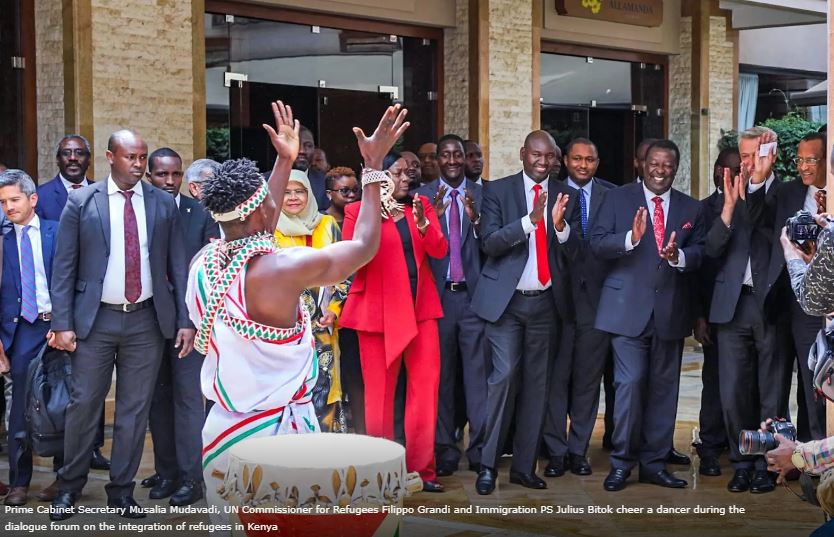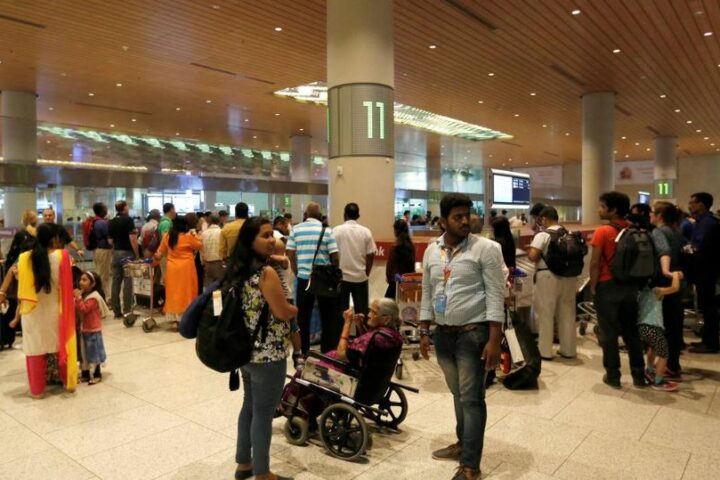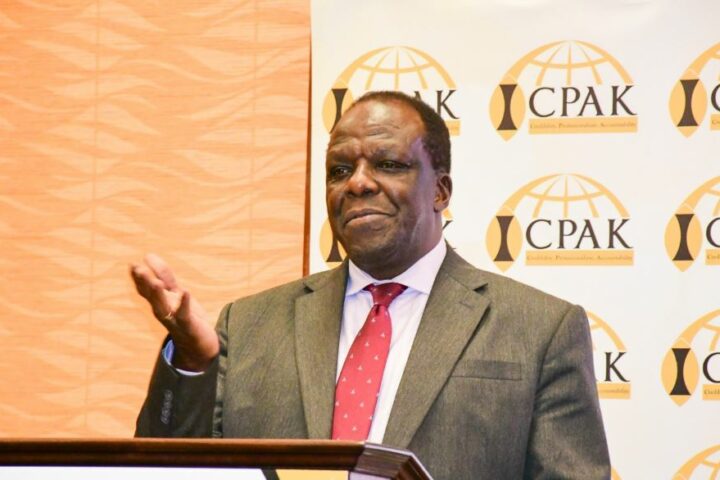 The government wants the UN and other agencies funding refugees in Kenya to prioritize local farmers when procuring food aid.
The government wants the UN and other agencies funding refugees in Kenya to prioritize local farmers when procuring food aid.
Prime Cabinet Secretary Musalia Mudavadi said buying grains from Kenyan farmers will provide a ready market for maize, rice, wheat, and other foodstuffs and prevent post-harvest losses attributed to seasonal abundance.
Speaking in Nairobi during a government-development partners dialogue forum on the Shirika Plan for the resettlement of refugees in Kenya, Mudavadi said by buying locally, aid agencies will also demonstrate appreciation for Kenyans’ sacrifice in hosting displaced communities.
“It is sad when we see that farmers in Kenya are struggling to sell their maize or wheat, but we are steadily importing all grain to feed the refugee camps from elsewhere.”
Kenya is the 13th largest refugee host nation in the world and fifth in Africa with 612, 413 registered refugees and asylum seekers mainly in Kakuma and Daadab camps. Somali, South Sudan, and the DRC to the source of refugees accounting for 56%, 30%, and 7% respectively.
There are also 94,417 urban refugees in Nairobi, Mombasa, Nakuru, and Eldoret among towns. Speaking at the same forum, the UN Commissioner for Refugees Filippo Grandi said the UN and other development partners have mobilized over $200 million dollars to fund the Shirika Plan which was previously known as the Marshall Plan for Refugees.
The money will be used to transform refugee camps into integrated settlements and to benefit the host communities by investing in projects in health, education and other sectors that target socio-economic empowerment and inclusion of both refugees and area residents.
Immigration PS Julius Bitok under whose docket the Refugees Secretariat falls said the government hoped that the successful implementation of plan that hopes to give dignity to refugees and to tap into their social-economic potential will boost security and infrastructural growth of counties hosting refugees.
“We believe integration is key to giving refugees a sense of belonging and making them shareholders in the quest for a stable and secure environment. We want them to play their role in upholding peace and in preventing insecurity in our country.”
Garissa Governor Nathif Jama and his Turkana counterpart Jeremiah Lomurukai whose counties host Daadab and Kakuma camps respectively said the integration of refugees into the host communities will cement already existing social-economic ties between residents and refugees and ease pressure on shared infrastructure.








